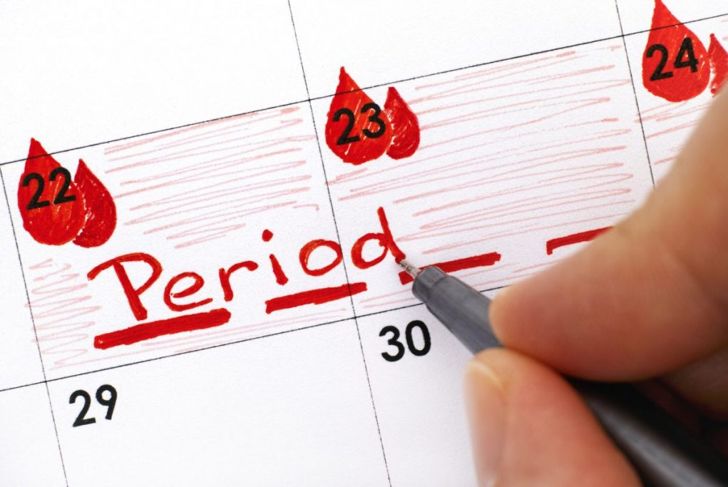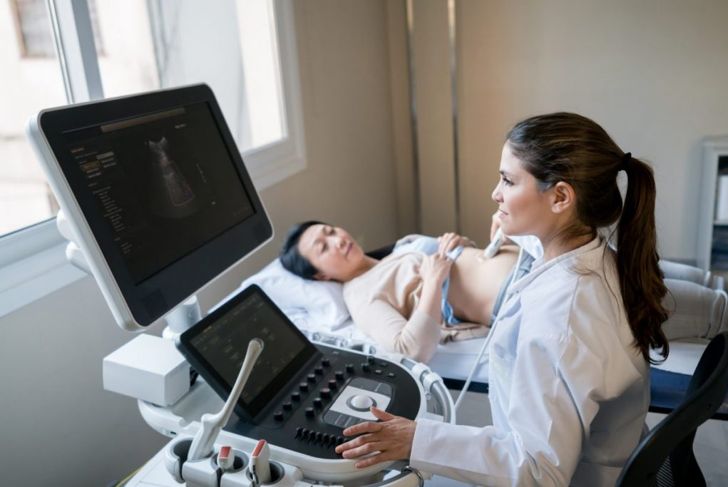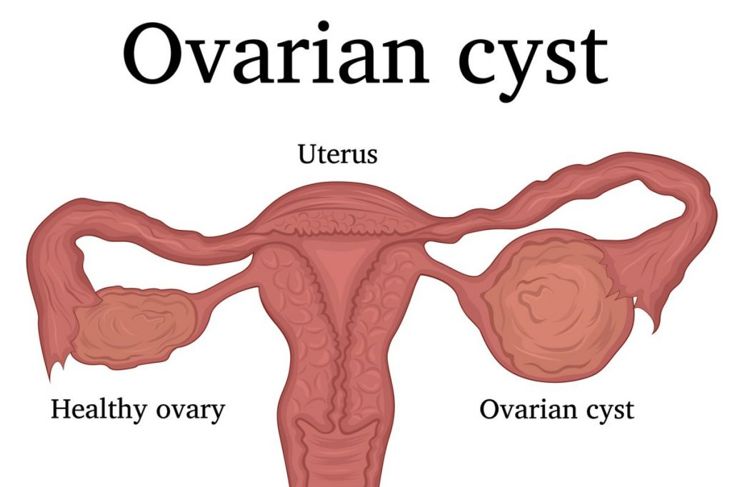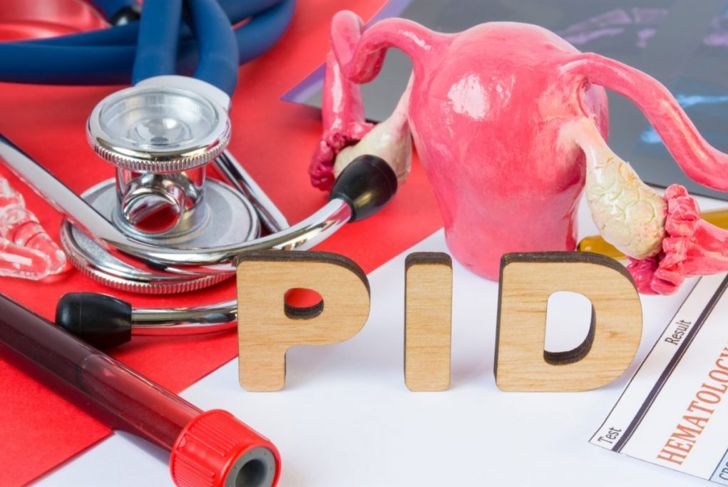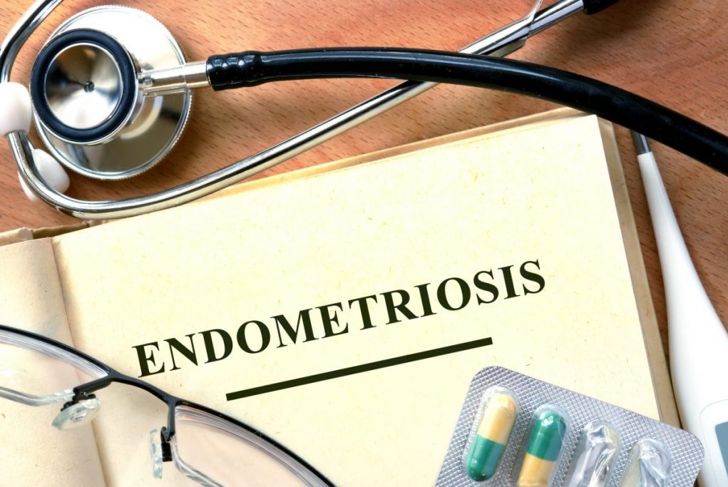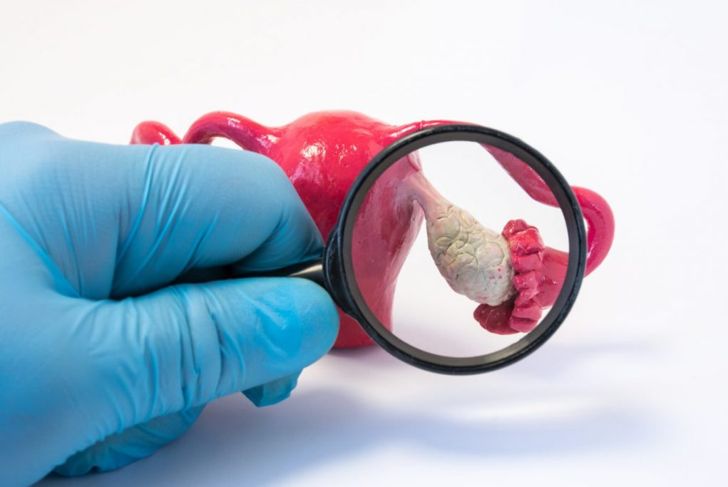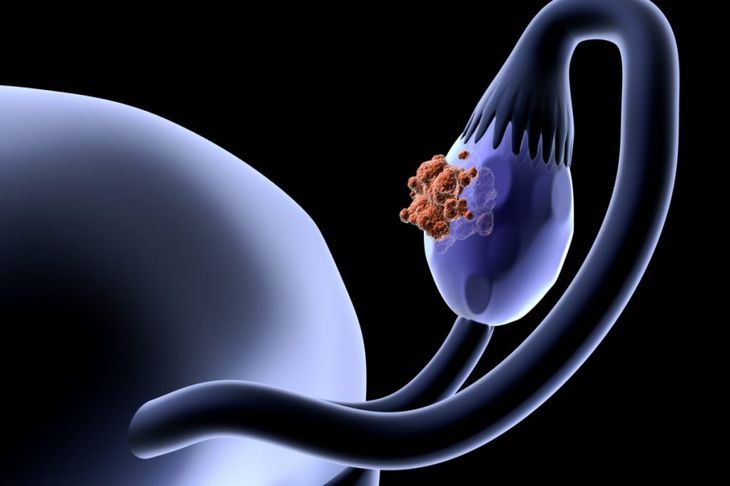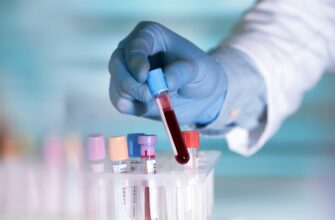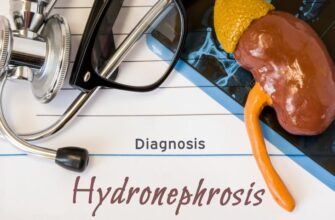Inflamed ovaries are common, and often affect women during their menstrual cycles. The event causes a small amount of pain and then generally subsides on its own. However, in some cases, an inflamed ovary is a sign of something more serious. Many women dismiss the symptoms as normal period pain or stomach ache, but some symptoms can indicate a need for medical review.
Symptom: Pain
The most common symptom of inflamed ovaries is pain, ranging from a dull ache to a sharp, stabbing sensation, depending on what is causing the enlarged ovary. Most women feel the sensation in the lower abdomen on one the side of the inflamed ovary. Women may also feel pelvic pain and pain during intercourse — both of these should prompt a medical visit.
Symptom: Menstrual Irregularities
Enlarged ovaries can affect ovulation, so menstrual irregularities are a common symptom of inflammation. Tracking periods regularly enables women to pinpoint when something is abnormal. Additionally, suddenly lighter or heavier periods can be cause for concern. Some women also miss periods or stop menstruating altogether.
Symptom: Digestive System
Swelling ovaries can interfere with other bodily functions as the organs place pressure on neighboring structures. Many women with inflamed ovaries report feeling the need to urinate more often but may be unable to go. Another common symptom is feeling full after eating very little, as the ovary takes up space the stomach would usually occupy. Suddenly indigestion or constipation can also indicate inflamed ovaries.
Symptom: Infertility
This symptom will not be readily recognizable by women who are not trying to get pregnant but for women who are unable to conceive it can be obvious and heartbreaking. Experts tell women that if they haven’t managed to conceive after a year of trying, they should see their physician, but women who notice infertility in addition to other symptoms of inflamed ovaries should seek medical advice earlier.
Diagnosing Inflamed Ovaries
Most doctors will choose to investigate further if they identify any symptoms of inflamed ovaries. Diagnosis may take some time as many of the symptoms are the same as those of other conditions such as appendicitis and problems with the intestines, bowel, and bladder. The most common diagnostic tool is an ultrasound, which allows the doctor to see the ovary and any irregularities. Blood tests and physical exams may also assist diagnosis.
Cause: Cysts
Cysts are the most common cause of inflamed ovaries, affecting around 18 percent of women. The two main types are functional cysts and pathological cysts. Most functional cysts disappear without treatment, especially in women who are still menstruating. The doctor may monitor post-menopausal women closely, as their cysts are more likely to be pathological and could be pre-cancerous. The most common reaction to these cysts is to monitor them and see if they disappear on their own, but particularly large or potentially cancerous cysts may require surgical removal. Women with multiple cysts on each ovary may have polycystic ovarian syndrome (PCOS). Lifestyle changes and hormonal medical treat this condition.
Cause: Pelvic Infection
Enlarged ovaries could indicate pelvic inflammatory disease (PID). Bacterial sexually transmitted infections generally cause PID, particularly chlamydia and gonorrhea. The infection starts in the vagina and spreads from there. In addition to the usual symptoms of enlarged ovaries, women with this condition may also have a fever and notice a change in vaginal discharge. Some women display no symptoms at all. PID is a serious condition that can cause scarring and blockage of the fallopian tube, leading to infertility.
Cause: Endometriosis
Statistics suggest between six and ten percent of women have endometriosis, a condition where cells similar to those found on the uterine wall grow outside of the uterus, including in the ovaries. Ovarian cysts that grow from endometrial tissue are called endometriomas. They can cause acute pain, and if they rupture, may lead to internal bleeding. Hormonal medications and painkillers treat endometriosis. Endometriomas require surgical removal using minimally invasive laparoscopy.
Cause: Torsion
Ovarian torsion happens when the ovary twists around the ligaments that hold it in place. Cysts in the ovaries increase the risk of this condition, but they can afflict any woman. Ovarian torsion is rare, but it is a medical emergency because it restricts blood flow to the ovary and can lead to infection, internal bleeding, and tissue death. Symptoms include acute, sudden lower abdominal pain as well as nausea and vomiting. The only way to untwist the ovary is with surgery, and minimally invasive procedures are available.
Cause: Tumors
Inflamed ovaries may be caused by tumors, both benign and malignant. When a doctor diagnoses a patient with a tumor, blood tests or transvaginal ultrasounds can enable further investigation. Ovarian cancer causes malignant tumors, which affect around 1.2 million women worldwide. Ovarian cancer is often misdiagnosed as irritable bowel syndrome, as the symptoms are similar. Treatment involves a mix of surgery, chemotherapy, and radiation therapy.

 Home
Home Health
Health Diet & Nutrition
Diet & Nutrition Living Well
Living Well More
More
